An article in the review of “École de guerre économique”(School of Economic Warfare) about Kabylia’s peaceful struggle for its self-determination, also highlighting the disinformation, manipulation and contradictions of the Algerian state.
The information war on peoples’ self-determination: the case of Kabylia
The right of peoples to self-determination (or the right of peoples to dispose of themselves) remains a pillar of contemporary international law. Several new states have emerged on this basis, since the adoption of the United Nations Charter (1945), making this right to self-determination operable, whether these peoples are deemed to be colonized or not.
This right to self-determination can unfortunately be exploited by certain powers, whether international or regional. Thus, the rules for recognizing a new state are multiple: recognition by a single state (South Ossetia), by a group of states (Kosovo) or sometimes, the birth of a new state even when the majority of the population opposes it (Bosnia and Herzegovina). It should be noted that the international system we know today allows the emergence and maintenance of corrupt and totalitarian regimes, reducing to nothing any mention of human rights or any attempt to apply democratic principles …
In this context, the information war, or even the strategy of disinformation initiated against these indigenous peoples claiming their right to self-determination, is of strategic importance for the maintenance of central power. Algeria occupies a special place in this debate insofar as it supports self-determination in some cases and denies it on the subject of the Kabyle question.
Algeria’s support for the Polisario, for its right to self-determination
This article will not dwell on the specific conflict in the Polisario and on the known stakeholders (Morocco, Spain, Algeria, Libya, Mauritania, France and then the United States, recently). Several articles perfectly support the geopolitical situation of this part of North Africa, as well as the role of the Polisario Front, which is not discussed either.
This analysis will focus on the significant elements in Algeria’s posture vis-à-vis the right of peoples to their self-determination, through the example of the Polisario.
Among the constants of the Algerian constitution, there is a specific article, inherent in the solidarity of Algeria towards the peoples fighting for their political and economic liberation. In its 1996 constitutional revision, Article 27 states “Algeria stands in solidarity with all peoples who struggle for political and economic liberation, for the right to self-determination and against all racial discrimination”. The constitutional revisions of March 2016 and 2020 will confirm this same article, via their paragraphs 30 and 32, respectively.
Algeria has long been a supporter of the Sahrawi independantists in their territorial dispute with the Maroccan kingdom. Several Algerian presidents have supported the Polisario… In February 2017, the government of Bouteflika renewed Algeria’s constant support for the Saharawi people, calling for a referendum to be held under its aegis. In early June 2021, Abdelmadjid Tebboune, the present president of Algeria, visited Brahim Ghali, president of the self-proclaimed Sahrawi Arab Democratic Republic (SADR), of which Algiers is the main chief support, during his hospitalization in Spain. A few days later, he received him in an Algerian military hospital, with a view to his convalescence.
On June 19, 2021, a diplomatic meeting in Algiers dedicated to the Sahrawi question highlighted Algeria’s unwavering positions in favor of the Sahrawi people and all the causes of liberation in the world (source Agence Presse Algeria). The Algeria / Polisario tandem thus highlights historical and sustained bilateral diplomatic relations, in a context of unprecedented crisis in the region.
The rejection of the self-determination of the Kabyle people
Some would qualify Kabylia as a perpetually rebellious “region” to the regime in power. The history of this territory, commonly called by all the Kabyles “Tamurt, ie Pays ”, is characterized by an identity struggle which finds its essence in the very definition of a people: The Kabyle people (more than 12 million Kabylian, a territory of 40,000 km2)
The most commonly accepted definition of the term “people” depends on two conditions: the first being objective and dealing with historical, ethnic, linguistic and cultural elements. The second is subjective, characterized by the will to live together, the vision of a common future and the feeling of belonging to the same group. This second element is the most salient.
The birth of new states takes place mainly in violence (with a few exceptions). However, in recent years, Nations without States, like Kabylia, have been able to innovate to take advantage of legal and peaceful means, by relying on international law. The prerequisites for this self-determination are multiple, including that of legitimacy. In addition, an indigenous people express their wish to separate from the country only when they are denied in their existence and in what defines them: their language and their culture. Language remains, in fact, the determining factor in the resistance of a people who have lost their sovereignty.
The recent history of Kabylia (last century) has been marked by the claim to identity (1949 so-called Berber crisis – 1963 – 1980 – 1994/1995 – 1998 – 2001 the Black Spring of Kabylia, 2019 to the present day) The Black Spring (April) 2001, scene of the assassination of more than 120 young Kabyle pacifist demonstrators by the Algerian Gendarmerie, using explosive bullets (more than 5,000 wounded including more than a thousand handicapped) marks a decisive turning point in the relationship between Algeria – Kabylia.
There followed a political divorce of nearly three years, a period during which the Kabyle territory lived in virtual autonomy, relying on the ancestral Kabyle political organization, known under the name of “Archs”. In June 2001, the Movement for the Autonomy of Kabylia (MAK) is born and carries the project of regional autonomy, to put an end to this permanent confrontation between the Algerian power and Kabylia.
This movement will evolve a few years later towards Self-determination with an expressed goal: Independence. The establishment of the Provisional Kabyle Government (GPK – Anavad) in exile, took place on June 1, 2010. Its President is Mr. Ferhat Mehenni, fervent defender of human rights for more than 40 years (co-founder of the league Algerian human rights), politician, writer and poet-singer in the Kabylian language, and winner of the Gusi peace prize in 2013.
Informational attack strategies
The Algerian authorities have developed several information warfare strategies to counter the Kabyle opposition.
The hardening of the elements of language
The “Consciousness Colloquium”, from August 18 to 20, 2020, which took place about fifty kilometers from Mostaganem and under the high protection of the Algerian gendarmerie, brought together dozens of participants, all animated by the same purpose. From then on, Kabylia will face unprecedented administrative, economic, judicial and physical repression. The Kabyle sovereignist militants are the first targets.
During the period 2019 – 2021, several anti-Kabyle racist appeals from deputies and members of the Algerian government were made, without any sanction being pronounced:
. 03/4/2020: Following the example of Naima Salhi, deputy and President of the Equity and Proclamation Party, – pouring out his hatred and racism with impunity by calling to exterminate the Kabyles and qualify the Kabyles “Jews of the worst kind”.
. 07/24/2020: The leader of the Rachad party, Mohamed Larbi Zitout, will call from London to “take up arms against the Kabylian separatists of the MAK”.
. 04/20/2021: Senator Abdelouahab Benzaïm who will strive to qualify Kabylia as a dangerous tumor and to conclude “one day, which is not far away, we will eradicate all these cancerous tumors which eat away at the body of a united nation”.
20/04/2021: Said Bensdira, influential journalist from London will advocate the extermination of the Kabyle: “If ever I have power, I would launch an appeal during the 8 p.m. newscast and I will tell the Kabyle people, especially those of Tizi Ouzou and Béjaïa: the citizens who stand out and reject the ideas and the ideology of the MAK separatists, I will demand them to leave Kabylia within 24 hours only, leaving the separatists and those who support them.” And he continues: “I will subsequently exterminate all those who will remain in Kabylia”.
Algerian politicians and social actors have made 14 statements with anti-Kabyle overtones in one year. Interestingly, all of these calls will go unpunished, while hundreds of political Kabylian activists are jailed for a simple Facebook post denouncing the practices of the Algerian regime.
In its report of 24/06/2021, Amnesty International will recall that the right to freedom of expression covers both online and offline expression. It will also point out the illegality of the restrictions promoted by Algeria and the severe sentences that result from them.
The invocation of terrorism and the demonization of the Kabyle opposition
On 20/04/2021, Kabylia commemorates the 20th anniversary of the black spring of 2001 as well as the 41st anniversary of the Berber Spring of 1980. Kabylia puts on its yellow and blue flag, and thousands of independence activists (MAK and others movements) and sympathizers march through the streets of Kabylia.
An attempted repression by kidnaping Kabylian activities, in particular in Tizi Ouzou, ended in failure which was a result of the will of these militants to proclaim loud and clear the right to self-determination of Kabylia and, of the solidarity of some Kabyle political activists of other persuasions (autonomists and federalists), having turned back to lend a hand to their comrades in the struggle.
This vision of a united Kabylia and not having displayed the colors of the Algerian flag will be yet another indicator of the central power, of the establishment of the MAK and of the popular Kabyle independence ideology. April 20, 2021 is also the date for the launch of the self-determination referendum for the independence of Kabylia (electronically), by MAK-Anavad. On April 25, 2021, the Algerian Ministry of National Defense (MDN) publishes a statement in which it informs that its security services allowed at the end of March, the dismantling of a criminal cell made up of supporters of the “MAK “, “separatists” involved in the planning of attacks and criminal acts.
This statement added that the Algerian army seized weapons of war and explosives intended for the execution of criminal plans. As evidence for its allegations, the ministry refers to a confession by a man named “H. Nouredine”, presented as a former member of the MAK. This statement was picked up by AFP (Agence France Presse) and a large number of French and international media.
On April 26, 2021, the MAK-ANAVAD movement strikes back. A denial was communicated by MAK-Anavad the day after the Ministery Defence press release, through the AFP which was grant a right of reply to this movement. The President of MAK-Anavad, in his speech, challenged the Algerian authorities to provide proof of his accusations and to present the identity of this famous H. Noureddine and any proof of the accusation made against the MAK . The MAK’s line of conduct for 20 years has been based on the political and peaceful struggle for the “right of peoples to self-determination”. To this date, no event of violence can be linked to this struggle, nor in Kabylia and even less abroad.
The consequence of this right of reply will be that AFP will be accused by the Algerian Ambassador in Paris, Mohamed-Antar Daoud of complacency and sympathy towards the MAK: ”AFP has accustomed its readers and users to more professionalism and ethics in its media coverage despite a negative critical editorial posture towards my country, Algeria. It is clear today that the fact of opening one’s thread to those responsible for this movement takes on a form of legitimation, even of sympathy towards those responsible for this separatist movement which is planning, according to verified information from the Ministry of Defense national, criminal actions and terrorist attacks against peaceful popular marches”.
On April 26, 2021, Algerian public television broadcasts the interview with the alleged ex-member of MAK, who gives viewers an incredible story, which is sorely lacking in precision. The latter “would literally fall” on guns while walking around, sell twice their price and estimate the MAK’s fortune at “between 180 and 186 billion dinars”. Supporters of the MAK movement point to yet another attempt to manipulate public opinion against a backdrop of anti-Kabyle propaganda.
The Kabyle socio-political organization being what it is, the Kabyle village from which he came has made it a point of honor to restore the truth: his fellow citizens will attest that he was never part of the MAK and that he was a known trafficker and convict. The serious accusations and blatant amateurism of this testimony were also denounced by Kabyle civil society.
On May 11, 2021, the law governing the referendum ballot for the self-determination of Kabylia was promulgated and made public, on the site of the Official Journal of Anavad (terms, conditions, guarantees and voting process …). A week later, the High Security Council (HCS) of the Algerian state classifies the MAK on the “list of terrorist organizations” and “to treat them as such”. The same day, Mr. Ferhat Mehenni, President of MAK-Anavad was taken into police custody in Paris.
The Kabyle community mobilized immediately and went before the Tribunal de Grande Instance of the 17th district to show its support for the President of MAK-Anavad. Indeed, the bilateral France-Algeria extradition agreement, ratified in March 2021, could be exploited, by shaking the “specter” of MAK terrorism and asking for the extradition of a supposed leader of a terrorist movement.
During the press conference on May 19, 2021, Gerald Pandelon, lawyer for Mr. Mehenni, clarified that the hearing concerned an organized gang money laundering (PMU) case with a dozen people of Chinese origin. Mr. Mehenni would be the victim in this case through the hacking of his bank card. No charge would be retained following these few hours of police custody.
On May 24, 2021, Mr. Mehenni seized the UN, through his Secretary General António Guterres, to whom he addressed a letter denouncing the classification of the MAK pacifist movement as a terrorist movement. He recalls that self-determination does not fall within the military domain but within the political domain and that: “To assume our responsibilities, we have asked our executives and supporters to never go underground and to assume as women and men peace our political and peaceful choices, regardless of the ferocity of the repression.”. The Chairman of MAK-Anavad concluded with a proposal to “submit to the UN Commission on Human Rights the study of the facts to determine who from the MAK or the Algerian power should be ostracized by the international community”.
On May 27, 2021, the decree classifying the Algerian state as a terrorist state was published in the Official Journal of Anavad. It draws on the historical elements that characterized Algiers-Kabylia relations, arguing that a terrorist state is one that exercises terror against its populations and its opponents through the use of assassination and torture.
June 2, 2021: Le Point broadcasts an interview with Algerian President Abdelmadjid Tebboune, who adds about the MAK “The MAK tried to act with car bombs.”
On June 10, 2021, the Algerian Penal Code is amended and the definition of the terrorist act is broadened and stipulates “Is considered a terrorist act or sabotage, any act aimed at the security of the State, national unity and stability and the normal functioning of institutions through any action aimed at: […] working or inciting, by any means whatsoever, to gain power or to change the system of governance by non-constitutional means; undermine the integrity of the national territory or incite to do so, by any means whatsoever “. June 12, 2021: At the third Zero Kabyle vote, the Algerian president responded “The turnout of the participation does not matter to me“. End of June 2021: The Kabyle political leaders of the MAK and other Kabyle sovereignist movements (AKAL, RPK) as well as their militants were imprisoned, on the grounds of belonging to a terrorist organization and undermining national unity. A new offense seems to appear: “the offense of Kabylity” Less than 2 months after the referral from Mr António Guterres, Anavad sends a request for intervention to the UN, against political repression in Kabylia, by returning to the United Nations charter which enshrines freedom of opinion, expression and organization.
Legislating freedom-killing laws
This strategy is closely linked to the previous strategy insofar as criminal sanctions were introduced in articles 294 to 313 of the organic law on the electoral regime. Thus “prison sentences of up to 20 years, in particular for acts of destruction or removal of ballot boxes, undermining the conduct of the ballot and disturbing the voting operations”. When we know the history of Kabylia vis-à-vis the Algerian elections, is it appropriate to ask whether this law is set up against Kabylia? The situation at the end of June 2021 highlights a cabal against MAK activists who will be flushed out from their homes on the grounds that they have prevented the elections from taking place.
Reaction of international opinion
Since April 2021, Algerian authorities have been holding charges of “terrorism” and “conspiracy against the state”, due to a speech or participation in protests. Amnesty International, in its report of June 24, 2021, insists that restrictions on the right of association and assembly are only legal if they comply with the principles of necessity and proportionality The United Nations Human Rights Committee United therefore stated that the state must identify the precise nature of the threat and demonstrate that the restrictions “are genuinely necessary to avert a real, and not just a hypothetical, danger to national security. And the special rapporteur on the fight against terrorism points out that the fact that an association seeks to achieve by peaceful means objectives which are contrary to the interests of the state is not sufficient to qualify this association as terrorist.
Result of this series of informational clashes
A constant and unequivocal political response from Kabylia was expressed at the polls. It is unnecessary to recall the deep crisis experienced in Algeria since 2019 and the violation of the most basic human rights that followed (resolution 2020/2880 RSP of the European Parliament on the deterioration of the human rights situation in Algeria). This crisis has exacerbated the practices of the central power, in response to the political posture of Kabylia, in the form of an unprecedented informational confrontation, even going as far as an international propaganda campaign by qualifying its movement for the self-determination, MAK of terrorist, as described above.
What are the political responses?
Presidential elections: if the votes in regions other than Kabyle territory were close to 40%, they were indeed 0% in Kabylia. The Kabyles have not elected their President for over 40 years. On December 12, 2019, the day of the presidential elections, Kabylia saw a day of bloody repression which, according to local sources of the pro-Kabyle movement, estimated the number of victims to be several dozen young Kabyle people. There are also counted dozens of blinded people.
Algerian Constitutional Referendum (01/01/2020): less than a year later, Kabylia respond to these hostile events with a second “0 vote”. Indeed, the constitution denies the Kabyle people its existence. A first wave of arrests takes place. MAK activists and officials are imprisoned without valid legal reason. Some are still awaiting trial (political detainees accused of undermining national unity and terrorism because of their political commitment)
Legislative elections (12. of June 2021): Kabylia persists and signs with an O Vote. Thus, Kabylia will not be represented in the Algerian parliament.
This informational confrontation made it possible to reveal the contradictions of Algeria against the Kabyle sovereignist movements and to rely on propaganda against a background of public diplomacy: disinforming to discredit on the international scene, before legislating while ignoring the Fundamental principles of the most elementary human rights, ratified by this same government to finally justify any existing and future repression.
Algeria does not have a simple position in front of the international community, in particular with regard to an article of law enshrined in the constitution, deemed immutable, such as the right to self-determination. This article of law serves both to support a pan-Arab foreign diplomacy (pro-self-determination towards Palestine and the Polisario), but also as a pretext to bully the various indigenous Berber peoples who constitute it, by denying them this same right to freedom to self-determination.
Echoing this contradiction, one can wonder about the interpretation to be given to the political response of Kabylia – which is not confined solely to the MAK movement or to the sovereignists – with the inscription three times in a row, with 0 vote at electoral meetings organized by the Algerian government (Presidential, Constitutional Referendum and legislative elections)?
Jeanne Printaloup EGE


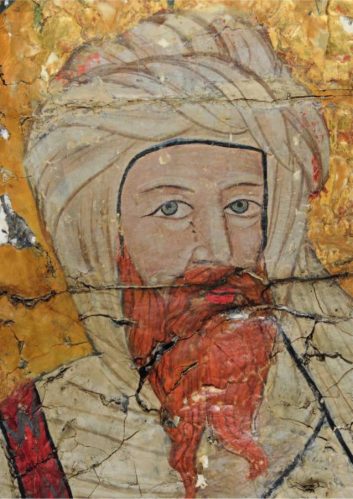
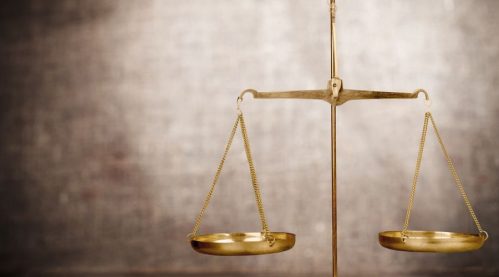
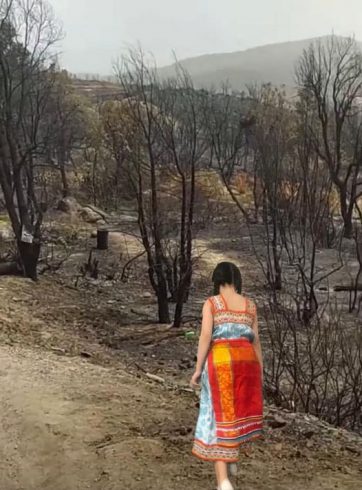
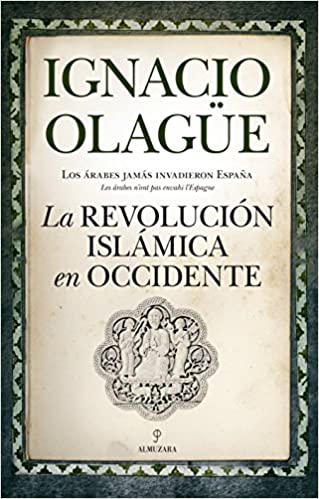
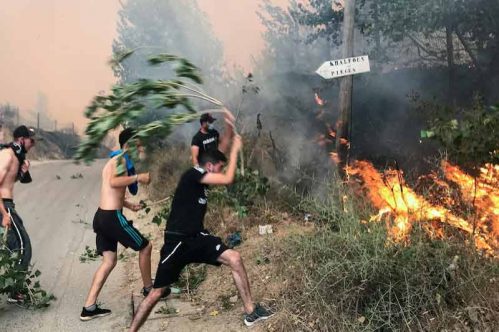
INTERVIEW WITH PRESIDENT FERHAT MEHENNI
Published in the weekly Maroc HEBDO Nro 1405 – From 03 to 09 September 2021
“KABYLIE IS OCCUPIED MILITARILY, IT IS COLONIZED
– We are conducting this interview at a pivotal moment for the Movement for Self-Determination of Kabylia (MAK), and for you in particular, since you are the subject of an arrest warrant from the Algerian judiciary for the murder of the activist Djamel Bensmail on August 11, 2021 in the municipality of Larbâa Nath Irathen, in Kabylia. On May 18, 2021, the Algerian state had also classified the MAK as a terrorist organization. What is your personal feeling about all these developments?
The classification of the MAK as a terrorist organization has no legal basis, nor any material evidence. We are dealing with a power whose software has never been updated since Boumediene. It manages the country like a barracks. It is totally disconnected from the reality of the country and the evolution of its international environment.
On the accusations which are unjustly brought against us, we are determined not to yield anything of our innocence and repeat as much as possible that they are only lies intended for an internal consumption.
In fact, since last May, three generals recently released from prison, and that we will attack by name at the ICC, have been charged with “demonizing” the MAK, Kabylia and my modest person. We are therefore prepared for this and such false and fanciful accusations cannot reach us. Even better! The more the military are relentless on us, the more they victimize us with the Kabyle people whose members, still hesitant, are rallying en masse to our cause.
Kabylia and all Algerians, even slightly aware of the nature of the regime they are undergoing, know that justice is transformed into a central propaganda agency that feeds daily intoxications to the hundreds of media in the hands of the Algerian Services and to the electronic flies in charge of polluting the social networks. Facebook has just deleted no less than 800 pages identified as those of Algerian propaganda agents.
As for the international arrest warrant against me, no credible police in the world will take it seriously.
– Has the MAK ever been instrumentalized, since its creation in 2001, by Morocco, as the Algerian authorities claim?
Never in my life. The MAK has sovereign authorities and does not intend to have its orientations dictated by any power. If we were corruptible, the Algerian colonialist regime would have been the first to bribe or manipulate us long ago. Enough nonsense.
In reality, accusing someone of anything is an old tactical recipe taken from the adage that “the best defense is an attack”. This will not keep us on the defensive.
– For now, Morocco has been content with simple statements of support at the United Nations (UN). Would you still like to have a diplomatic representation in Rabat?
I have already formulated in some columns of Moroccan media our wish and our willingness to open a Kabyle diplomatic representation in the Cherifian Kingdom. We hope that we are not far from it in terms of agenda.
– In Morocco, some people are reluctant to support you because it could mean opening a new breach in the Sahara region, even though it is since at least the Moroccan Almoravid dynasty and it is only during the French colonial period that Kabylia has been attached to Algeria. What are your arguments today to convince the Moroccan people of the rightness of your cause?
Algeria is a French creation ex nihilo. Kabylia was already a confederation attested as early as the 4th Century AD, that of the Quinquegentians detailed by the Roman historian Ammianus Marcellinus. In the Middle Ages, it was a Kingdom that signed treaties with its Mediterranean neighbors, notably the Vatican, Spain and Morocco. The Turkish Regency was almost swallowed up by the King of Koukou, Ahmed OulKadi, who laid siege to Algiers for months. There are still vestiges of this siege on the heights of Algiers, in Bouzaréah in particular, with a fortress that is still called Bordj Koukou.
Kabylia has always been independent since the beginning of time. It is the French colonization which, after the battle of Icherridène, above Larbaa Nath Irathen, in June 1857, attached Kabylia by force to French Algeria. However, no Kabyle chief or dignitary had had the disgrace of signing a treaty of surrender as did Emir Abdelkader with the Treaty of Tafna. The Kabyle chiefs had made it a point of honor not to sign any capitulation. To this day, this annexation of Kabylia to Algeria is legally and historically illegal.
– In attacks whose anti-Semitic character is obviously undeniable, the official Algerian media reproach you for the support displayed in May 2016 towards you by the French Jewish intellectual Bernard-Henri Lévy to accuse you of serving a great Zionist plot against Algeria. Any comment on this?
Anti-Semitism is an ideological food served daily to Algerians by the school and the media close to the power. Kabylia does not harbor any hatred against peoples, races or religions. Many Kabyle Jewish families had converted to Islam in order not to be separated from their own following the Crémieux Decree (1870). But we knew very quickly, after the independence of Algeria, that we have no reason to hate Israel. We have a duty to denounce injustices or violations of human rights throughout the world, but we are not neo-Nazis professing the dismantling of the State of Israel. The Israeli people are a brotherly people, just like all the peoples of the planet Earth.
– What is your real political weight in Kabylia today?
We cannot evaluate the political strength of a peaceful national liberation movement like us, in times of state terrorism. Kabylia is militarily occupied, it is colonized. Acts of a nameless war have just been committed against us. Algerian colonialism has just burned alive our children, burned three quarters of the territory of Kabylia, 80% of our villages. It is a devastation to which it has just subjected the Kabyle people. This is similar to the operation Anfal 1 and 2 of Saddam Hussein against the Kurds.
The terror that the Algerian colonial regime has been trying to install in Kabylia for the last few months, resembles that of General Massu and the parachutists of the Battle of Algiers. Torture with the taser, like yesterday with the gene, is practiced these days in the places of interrogation of the militants and the arrested Kabyle citizens. This situation does not allow the Kabyle people to go out in the street and be massacred by the army and the police. As a man of peace and a humanist, I do not have the heart to assume a bloodbath.
– When we interviewed you five years ago, you told us that you were convinced that Kabylia would be independent in your lifetime. Would you still say the same thing today?
This day is not as far as when I told you. This aside, one is never safe from an accident as an individual. Even if this is not the case, I will leave serene and proud, happy to have, like Moses, guided my people towards their freedom.
SIWEL 031930 SEPT 21